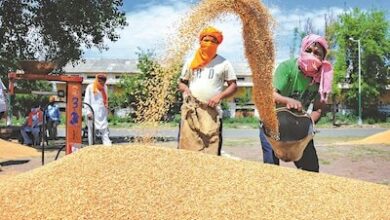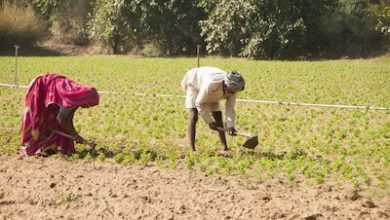Malaysia terms India’s import duty hike on palm oil a temporary aberration | External Affairs Defence Security News

)
Malaysia has offered to support India’s domestic palm oil cultivation. | Image: Wikimedia commons
Malaysia’s Plantation and Commodities Minister Datuk Seri Johari Abdul Ghani on Tuesday termed India’s recent hike in palm oil import duty as a “temporary aberration”, saying demand for the commodity remains steady.
Ghani dismissed speculation about arrangements between Malaysia and India for palm oil supplies in exchange for fighter aircraft transfers.
Click here to connect with us on WhatsApp
India, the world’s largest edible oil importer, raised import duties on palm oil and other edible oils on September 14, 2023, increasing the effective duty on crude palm oil from 5.5 per cent to 12.7 per cent and on refined oils from 13.75 per cent to 35.75 per cent.
“Any kind of aberration, for me, it is just temporary,” Ghani said responding to a PTI query during a press conference on the sidelines of the Malaysia Palm Oil Forum.
The recent tariff policy changes by India will not create any “issue”, he added.
The minister emphasised that India, with its population of 1.4 billion, has various options for edible oils, including palm, sunflower, and soybean oils.
“We will continue to be a good partner with India and continue to supply sustainable palm oils,” he said.
Malaysia has offered to support India’s domestic palm oil cultivation.
During his recent India visit, Ghani met Agriculture Minister Shivraj Singh Chouhan and offered help the country with seeds and technology.
On why Malaysia would support India’s palm oil cultivation despite its own palm oil-dependent economy, Ghani cited the “special” bilateral relationship. He said Malaysia relies on Indian commodities like rice, onion and sugar.
Malaysian palm oil production has reached 12.6 million tonnes this year and is expected to exceed 19 million tonnes, the highest since 2020, according to the minister.
Addressing protectionist trade policies, Ghani advocated for fairness in global trade. He referenced the European Commission’s recent announcement to delay implementing the EU Deforestation Regulation until December 30, 2025, pending approval.
As of August 2024, 81.24 per cent of Malaysia’s palm oil plantations, equivalent to 4.6 million hectares, are Malaysia Sustainable Palm Oil certified.
The Malaysian palm oil sector faces challenges from changing market dynamics, trade policies and environmental concerns, Ghani said.
“Malaysia believes that it would be in the best interest of nations to amplify meaningful two-way engagements rather than imposing regulations upon others,” he added.
According to data from the Malaysian Palm Oil Board (MPOB), Malaysia exported 2.84 million tonnes of palm oil to India in 2023, maintaining India’s position as the top destination for Malaysian palm oil and representing 18.8 per cent of total exports.
(Only the headline and picture of this report may have been reworked by the Business Standard staff; the rest of the content is auto-generated from a syndicated feed.)
First Published: Oct 08 2024 | 4:15 PM IST




